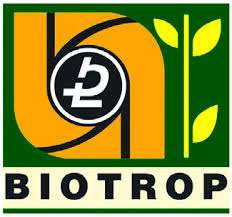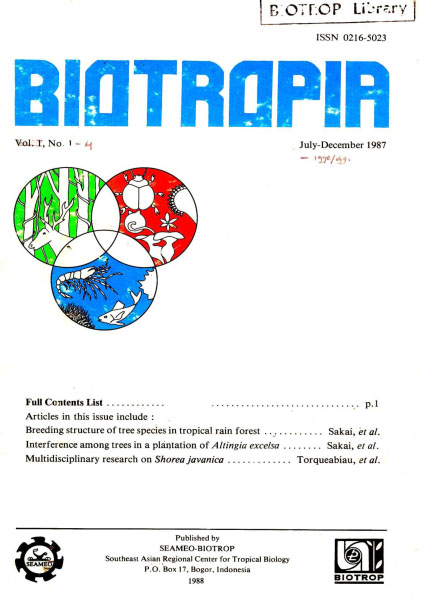
Tags
V. PRELIMINARY STUDY ON ISOZYMES OF SHOREA JAVANICA
Content Language : English

The detection of genetic variability in natural or man-made populations/ plantations is useful in both basic and applied biology. In addition to the various facets of studies on
Shorea javanica already initiated by Torquebiau (1984) and alongside with his recommendations on focus for future research, a study on the genetic aspects of the
species should be given important considerations. As the trees are tapped for resin, an important forest product, the genetic basis of the production as well as the range of
variation in amount of resin production among the trees must be known. Coupled with this is a thorough investigation on the differences in pest resistance/susceptability among the trees and their genetic basis. While the assumption (Torquebiau 1984) that trees in natural forest areas are-rarely attacked by diseases because of mycorrhizal fungi is
interesting, its confirmation is necessary. If this is true, problems would arise when plants are introduced into a new plantation site as experienced by the Forest Research Institute
(Ardikoesuma 1954). Thus, we need to look for pest resistant plants i.e. those that can remain healthy even in the absence of mycorrhizae. The above studies on possible genetic variation could give vital information for
development of forest plantations of the species and for breeding and tree improvement strategies. By knowing the extent of genetic variation in natural population or in
plantations one could be guided to maintain or increase the genetic base in these areas. Biochemical characters such as isozyme banding patterns have been useful in several
areas of plant biology, population genetics, evolution and breeding. Isozymes are detected by starch gel electrophoresis and when their genetic control is established, they
could be genetic markers in analyzing variation in morphological or physiological characters. The present study is an attempt to detect the isozymes in leaves, seeds and cotyledons of Shorea javanica by gel electrophoresis.

This work is licensed under a Creative Commons Attribution-NonCommercial-NoDerivatives 4.0 International License.
